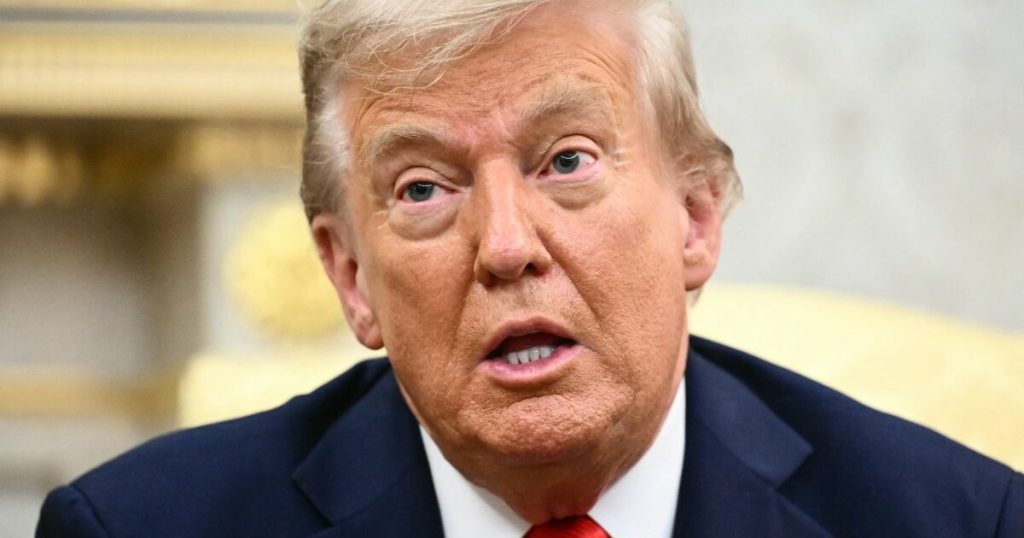The escalating conflict in Ukraine has become a focal point of international tension, particularly regarding China’s stance on the matter. Former US President Donald Trump’s call for European nations to exert economic pressure on China due to its perceived support for Russia has sparked strong opposition from Beijing. China vehemently denies playing any role in the crisis, asserting its neutrality and advocating for a peaceful resolution. However, its close relationship with Russia, exemplified by the “no limits partnership” declared before the invasion and further solidified by recent joint appearances of their leaders, fuels suspicion among Western nations. This intricate geopolitical dynamic raises critical questions about China’s true intentions and the potential repercussions of escalating economic pressure.
China’s response to Trump’s call for economic pressure reflects its unwavering position of non-involvement in the Ukraine conflict. Beijing insists it is not a party to the conflict and rejects any attempts to implicate it. The “strongly oppose” language used by the Chinese Foreign Ministry spokesperson underscores the seriousness with which China views these accusations and the potential economic ramifications. This firm stance aligns with China’s consistent narrative of promoting peace and dialogue while criticizing Western nations for allegedly prolonging the war through arms supplies to Ukraine. The clashing perspectives highlight the deep divisions and mistrust between the involved parties, further complicating efforts to de-escalate the situation.
The crux of the issue lies in the contrasting interpretations of China’s relationship with Russia. While China maintains it is a neutral actor seeking a peaceful end to the war, its close ties with Russia, particularly after the invasion of Ukraine, raise concerns among Western powers. The “no limits partnership,” the deepening economic and political cooperation, and the recent public display of unity between Xi Jinping and Vladimir Putin at a military parade, all contribute to the perception that China tacitly supports Russia’s actions. This perception is further reinforced by China’s refusal to condemn the invasion or call for a Russian withdrawal from Ukrainian territory.
China’s insistence on its neutrality is juxtaposed against its consistent criticism of Western nations for their involvement in the conflict. Beijing argues that supplying arms to Ukraine only prolongs the fighting and fuels further instability. This narrative serves a dual purpose: it deflects attention away from China’s relationship with Russia and positions China as a responsible global actor advocating for peace. However, critics argue that this stance overlooks Russia’s role as the aggressor and ignores the Ukrainian people’s right to defend themselves.
The recent military parade in Moscow, commemorating the 80th anniversary of the end of World War II, provided a stark visual representation of the close ties between China, Russia, and North Korea. The presence of Xi Jinping and Kim Jong Un alongside Putin sent a powerful message of solidarity, further fueling concerns among Western nations. While China framed the event as an opportunity to remember history and promote peace, critics interpreted it as a show of force and a tacit endorsement of Russia’s actions in Ukraine. This event, combined with China’s ongoing refusal to condemn the invasion, further deepens the divide between China and the West, making a peaceful resolution to the conflict even more elusive.
The ongoing debate over China’s role in the Ukraine conflict underscores the complexities of international relations and the difficulty of achieving a consensus on such highly sensitive issues. China’s insistence on its neutrality is met with skepticism by many in the West, who point to its close ties with Russia as evidence of tacit support. The call for economic pressure on China adds another layer of complexity to an already volatile situation. Resolving this impasse requires open communication, a willingness to address legitimate concerns, and a commitment to finding a peaceful solution that respects the sovereignty and territorial integrity of all nations involved. The escalating tensions surrounding China’s stance highlight the urgent need for diplomatic efforts to prevent further escalation and promote dialogue as the path towards a peaceful resolution.


